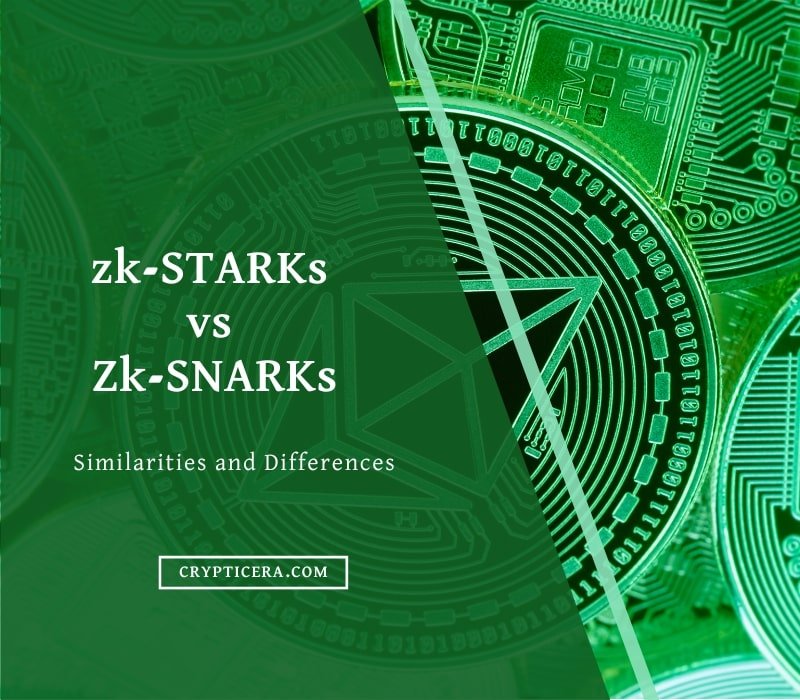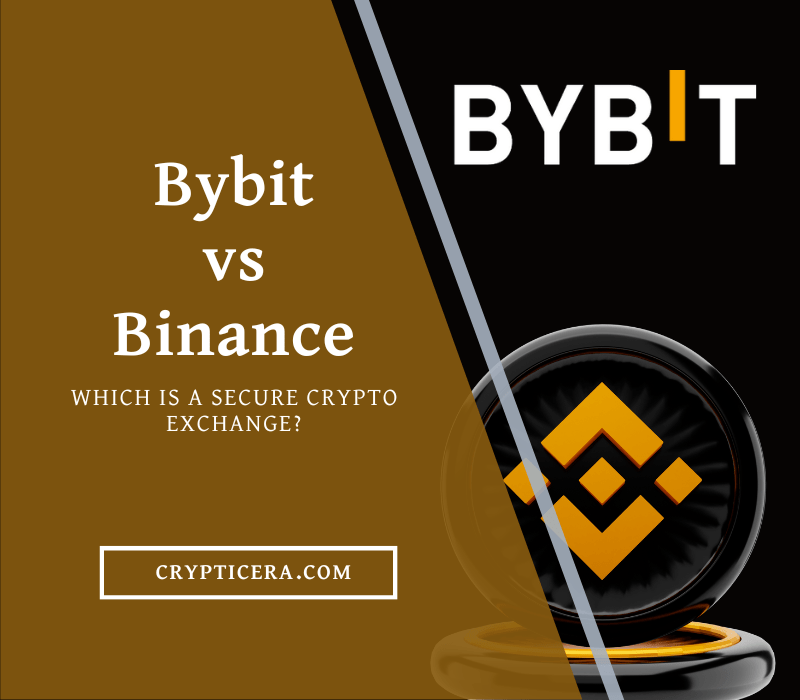Cryptocurrencies have taken the world by storm in recent years, with numerous different options now available on the market. Among the most popular of these are Bitcoin, Ethereum, and Litecoin.
In this blog post, we will compare these three cryptocurrencies and discuss their use cases to help you better understand their unique features and potential benefits.
So, without further ado, let’s dive in and take a closer look at Bitcoin, Ethereum, and Litecoin.
Bitcoin vs Ethereum vs Litecoin: At a Glance
| Bitcoin | Ethereum | Litecoin | |
|---|---|---|---|
| Purpose | Decentralized digital currency | Decentralized platform for smart contracts | Faster and cheaper alternative to Bitcoin |
| Mining | Proof-of-work | Proof-of-stake | Hybrid proof-of-work/proof-of-stake |
| Transaction fees | High | Low | Low |
| Security | Proof-of-work | Proof-of-stake | Hybrid proof-of-work/proof-of-stake |
| Adoption | Widely adopted | Growing in popularity | Growing in popularity |
| Scalability | Limited | highly scalable | Improved with SegWit and Lightning Network |
| Decentralization | High | Moderate | Moderate |
| Supply | 21 million units | No fixed limit | 84 million units |
| Speed | Slow | Fast | Fastest of the three |
| Governance | Decentralized | More centralized | More centralized |
| Privacy | Private | less privacy | Added privacy features |
| Smart contract functionality | No support | Decentralized apps support | Limited support |
| Community support | Large and active | Strong but smaller than Bitcoin | less |
| Real-world use cases | Store of value and medium of exchange | DApps | supply chain management and payments |
| Market capitalization | $400B | $160B | $6B |
| Development team | Large and active | Strong but smaller than Bitcoin | Strong but smaller than Bitcoin |
| Integration with other technologies | Wide support | widely supported | Some support |
| Liquidity | High | high | medium |
| Energy consumption | High | low | moderate |
What is Bitcoin (BTC)?

Bitcoin is a digital currency that relies on a decentralized, peer-to-peer network.
It is created and managed by a complex computer algorithm, unlike traditional currencies issued by central banks. The total supply of Bitcoins is limited to 21 million by the algorithm.
The decentralized nature of the Bitcoin network also makes it resistant to manipulation and counterfeiting, as transactions are verified by a network of computers.
How does Bitcoin Work?
To send bitcoins to someone, a user initiates a transaction by sending a message to the recipient’s Bitcoin address.
This message, broadcast to the network, includes the number of bitcoins, the sender’s and recipient’s Bitcoin addresses, and a digital signature verifying the sender’s identity.
Miners, using powerful computers, process and verify transactions by solving complex mathematical equations. When a miner verifies the transaction, they add it to the blockchain, a decentralized and secure record of all Bitcoin transactions.
Once the transaction is verified and added to the blockchain, the recipient can access the bitcoins.
The blockchain, as a decentralized and public record, prevents the same bitcoins from being spent more than once and provides high security and transparency for the Bitcoin network.
What is Ethereum (ETH)?

Ethereum is a decentralized, open-source blockchain platform that enables smart contract creation and execution.
It utilizes the cryptocurrency Ether to pay transaction fees and services on its network.
Unlike Bitcoin, Ethereum aims to be a platform for decentralized applications. It has the potential to transform various industries through decentralized and secure smart contracts and dApp creation and execution.
How does Ethereum Work?
Ethereum uses blockchain technology to create a decentralized computer network that executes smart contracts. The cryptocurrency Ether powers the network and users pay for transactions and services with it.
The Ethereum Virtual Machine (EVM) at the core of the platform allows developers to build and run decentralized applications (dApps). Users must install a wallet to manage their Ether and interact with the network.
They can use Ether to pay for transactions and services or participate in initial coin offerings (ICOs) and other Ethereum-based projects.
What is Litecoin (LTC)?

Litecoin’s creators designed it as a faster and more efficient version of bitcoin. It handles more transactions in less time and efficiently uses computing power.
A decentralized, peer-to-peer network verifies Litecoin’s transactions and it operates independently of any central authority.
Litecoin also uses blockchain technology, but a different algorithm mines its new coins, making the process faster and more efficient than bitcoin.
How does Litecoin Work?
A decentralized network of computers verifies transactions on the Litecoin network and records them on the publicly available Litecoin blockchain.
To use the Litecoin network, users must install a Litecoin wallet on their device, which allows them to send and receive Litecoin and manage their balance.
The sender initiates a transaction by sending a request with the recipient’s Litecoin address and the amount to be sent.
Miners on the network verify the request and add it to the next block on the Litecoin blockchain, which is then added to the public record of all Litecoin transactions.
Bitcoin vs Ethereum vs Litecoin: Key Differences
Purpose
Bitcoin, Ethereum, and Litecoin all have different purposes. Bitcoin is a decentralized digital currency designed to be used as a medium of exchange.
Ethereum is a decentralized platform that runs smart contracts, allowing developers to build and deploy decentralized applications.
Litecoin is a cryptocurrency designed to be faster and cheaper to use than Bitcoin.
Mining
Bitcoin uses a proof-of-work (PoW) mining algorithm to secure its network. This means that miners compete to solve complex mathematical problems to validate transactions and add them to the blockchain.
Ethereum also uses a PoS mining algorithm. In a PoS system, miners are chosen to validate transactions based on the amount of Ether (the native cryptocurrency of Ethereum) that they hold.
Litecoin uses a PoW algorithm called Scrypt, which is designed to be more lightweight and less resource-intensive than the algorithm used by Bitcoin. This allows for faster transaction processing times on the Litecoin network.
Transaction fees
Users are charged a transaction fee when they send a transaction on a blockchain network. Miners validate and add these transactions to the blockchain and receive the fees.
Bitcoin, Ethereum, and Litecoin have different methods for calculating transaction fees.
Bitcoin uses a dynamic fee structure where fees are based on the current demand for block space and the competition among users to have their transactions included in the next block.
Thus, fees for Bitcoin transactions can fluctuate greatly and are often high during times of heavy network usage.
Ethereum also uses a dynamic fee structure but allows users to specify the gas limit and gas price for their transactions. The gas limit is the maximum amount of computational resources a transaction is allowed to use and the gas price is the amount the user is willing to pay for each unit of gas.
These two factors determine the total transaction fee for a transaction on the Ethereum network.
Litecoin has a fixed fee structure where fees are set at a constant rate per unit of data. This means Litecoin transaction fees are generally lower and more predictable compared to Bitcoin and Ethereum.
Security
All three cryptocurrencies use advanced cryptography to secure transactions and protect against fraud. However, each has its unique security features.
For example, Bitcoin uses a proof-of-work system, while Ethereum uses a proof-of-stake system. Litecoin uses a hybrid of both proof-of-work and proof-of-stake, which provides added security.
Adoption
The adoption of a cryptocurrency is an important factor to consider when comparing different options.
Bitcoin is the most widely adopted cryptocurrency, with a large number of merchants, businesses, and individuals accepting it as a form of payment. Ethereum and Litecoin are also gaining in popularity, but they are not as widely adopted as Bitcoin.
However, Ethereum is widely used for smart contracts and building Decentralized applications.
Scalability
Scalability refers to a cryptocurrency’s ability to handle a large number of transactions without slowing down or becoming congested.
Bitcoin is known for its limited scalability, which can cause transaction delays and high fees during times of high demand.
Ethereum is a highly scalable blockchain with a large number of transactions handling and implementing DApps on its network.
Litecoin has implemented scalability improvements, such as the use of SegWit and Lightning Network, which can help them handle more transactions more efficiently.
Decentralization
Decentralization is an important characteristic of cryptocurrencies, as it ensures that no single entity has control over the network.
All three cryptocurrencies are decentralized, but they have different degrees of decentralization. Bitcoin is considered to be the most decentralized, with a large and diverse network of miners and nodes.
Ethereum and Litecoin are also decentralized, but their networks are somewhat more centralized.
Supply
The total supply of a cryptocurrency is an important factor to consider when comparing different options.
Bitcoin has a limited supply of 21 million units, which is expected to be reached in the next few decades. Ethereum has no fixed supply limit, but it has a mechanism in place to reduce the rate of new unit creation over time.
Litecoin has a maximum supply of 84 million units, which is four times the maximum supply of Bitcoin.
transaction Speed
The average transaction on Bitcoin takes about 10 minutes to process, making it the slowest of the three. The Bitcoin network has limited capacity, only able to process a certain number of transactions per block, causing delays during high network usage.
Ethereum processes transactions an average of 15 seconds, making it faster than Bitcoin. The Ethereum network has a higher capacity, allowing it to process more transactions per block.
Litecoin has the fastest average transaction time of 2.5 minutes, due to its use of the Scrypt algorithm for its proof-of-work system. This allows for faster processing than the other two networks.
Governance
Cryptocurrencies are decentralized, which means that they are not controlled by any single entity. However, each cryptocurrency has its governance structure, which determines how decisions about the network are made.
Bitcoin has a decentralized governance structure, with no single authority making decisions for the network.
Ethereum and Litecoin have more centralized governance structures compared to bitcoin, with a smaller group of individuals or entities making decisions for the network.
Privacy
The privacy of a cryptocurrency is an important factor to consider, especially for those who value their financial privacy.
Bitcoin is not a completely private cryptocurrency, as all transactions are recorded on the public blockchain and can potentially be traced.
Ethereum and Litecoin also have transparent blockchain networks, but they have added privacy features, such as the ability to use zero-knowledge proofs to hide transaction details.
Smart contract functionality
Developers did not create Bitcoin as a cryptocurrency that supports smart contracts.
Although it is possible to create simple smart contracts on the Bitcoin network using certain programming languages, other cryptocurrencies are better suited for this use case.
Ethereum, on the other hand, specifically designed its network to support smart contracts.
The Ethereum Virtual Machine executes smart contract code and makes the Ethereum network an ideal platform for building decentralized applications and implementing complex smart contracts.
Litecoin also supports smart contracts, but not as effectively as Ethereum.
Litecoin’s Script language allows for the creation of simple smart contracts, but it does not have the same capabilities as the Ethereum Virtual Machine and is not as commonly used for this purpose.
Real-world use cases
The potential real-world use cases for a cryptocurrency can also be an important factor to consider when comparing different options.
Bitcoin is primarily used as a store of value and a means of exchange, but it also has potential uses in areas such as cross-border payments and micropayments.
Ethereum and Litecoin have similar use cases, but they also have potential applications in areas such as supply chain management and decentralized finance.
Development team
An anonymous individual or group of individuals known as Satoshi Nakamoto created Bitcoin.
Vitalik Buterin, a programmer and cryptocurrency researcher, created Ethereum. The Ethereum Foundation, a non-profit organization supports the development of the network
The Foundation, made up of a team of experienced developers and a large community of volunteers, promotes the development and adoption of Ethereum.
Charlie Lee, a former Google engineer, created Litecoin. It is a non-profit organization that promotes the development and adoption of Litecoin and supports the Litecoin network.
Integration with other technologies
Bitcoin has integrated with other technologies for a longer time than the other two cryptocurrencies.
For example, it is now possible to use Bitcoin to make purchases at an increasing number of online and physical stores. There are several Bitcoin-based debit cards and payment processors making it easy to spend Bitcoin in various settings.
Ethereum also integrates well with other technologies and serves as a platform for creating decentralized applications (dapps).
These dapps can interact with a wide range of other technologies, including smart contracts, decentralized finance (DeFi) applications, and more.
Although not as well-integrated with other technologies as Bitcoin and Ethereum, Litecoin can still be used for various purposes like payment processing.
Liquidity
Liquidity refers to how easy it is to buy and sell a cryptocurrency. Bitcoin is the most liquid cryptocurrency, with a large and active market and many exchanges offering support for it.
Ethereum and Litecoin also have good liquidity, but they may not have as many options for buying and selling as Bitcoin.
Energy consumption
Bitcoin uses the most energy of the three cryptocurrencies, primarily because the proof-of-work (PoW) system that it uses is computationally intensive.
This means that a lot of energy is required to run the powerful computers that are needed to mine new bitcoins and validate transactions on the network.
Ethereum uses a PoS system which reduces its energy consumption.
Litecoin uses a different algorithm called Scrypt for its PoW system. This is less energy-intensive than the algorithms used by Bitcoin.
As a result, Litecoin consumes less energy than bitcoin but more energy than Ethereum.
Conclusion
In conclusion, Bitcoin, Ethereum, and Litecoin are all popular cryptocurrencies that have unique features and use cases.
Bitcoin is the original and most well-known cryptocurrency, known for its decentralization and its use as a store of value.
Ethereum is a decentralized platform that enables smart contracts and dApps, allowing for a wide range of potential use cases.
Litecoin, on the other hand, is a faster and cheaper version of Bitcoin, designed for everyday transactions.
Each of these cryptocurrencies has its own strengths and weaknesses, and they all have the potential to play important roles in the future of money and value transfer.


